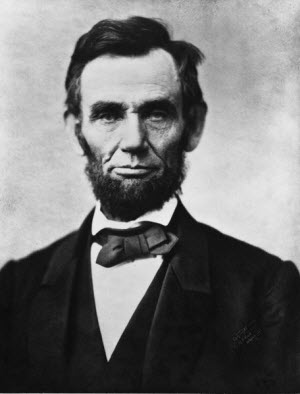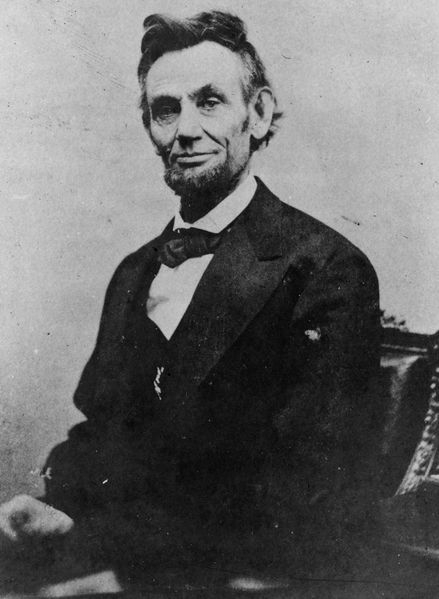After the War was well on, and several battles had been fought, a lady from Alexandria asked the President for an order to release a certain church which had been taken for a Federal hospital. The President said he could do nothing, as the post surgeon at Alexandria was immovable, and then asked the lady why she did not donate money to build a hospital.
"We have been very much embarrassed by the war," she replied, "and our estates are much hampered."
"You are not ruined?" asked the President.
"No, sir, but we do not feel that we should give up anything we have left."
The President, after some reflection, then said: "There are more battles yet to be fought, and I think God would prefer that your church be devoted to the care and alleviation of the sufferings of our poor fellows. So, madam, you will excuse me. I can do nothing for you."
Afterward, in speaking of this incident, President Lincoln said that the lady, as a representative of her class in Alexandria, reminded him of the story of the young man who had an aged father and mother owning considerable property. The young man being an only son, and believing that the old people had outlived their usefulness, assassinated them both. He was accused, tried and convicted of the murder. When the judge came to pass sentence upon him, and called upon him to give any reason he might have why the sentence of death should not be passed upon him, he with great promptness replied that he hoped the court would be lenient upon him because he was a poor orphan!
"BAP." McNABB'S BOOSTER.
It is true that Lincoln did not drink, never swore, was a stranger to smoking and lived a moral life generally, but he did like horse-racing and chicken fighting. New Salem, Illinois, where Lincoln was "clerking," was known the neighborhood around as a "fast" town, and the average young man made no very desperate resistance when tempted to join in the drinking and gambling bouts.
"Bap." McNabb was famous for his ability in both the raising and the purchase of roosters of prime fighting quality, and when his birds fought the attendance was large. It was because of the "flunking" of one of "Bap.'s" roosters that Lincoln was enabled to make a point when criticising McClellan's unreadiness and lack of energy.
One night there was a fight on the schedule, one of "Bap." McNabb's birds being a contestant. "Bap." brought a little red rooster, whose fighting qualities had been well advertised for days in advance, and much interest was manifested in the outcome. As the result of these contests was generally a quarrel, in which each man, charging foul play, seized his victim, they chose Lincoln umpire, relying not only on his fairness but his ability to enforce his decisions. Judge Herndon, in his "Abraham Lincoln," says of this notable event:
"I cannot improve on the description furnished me in February, 1865, by one who was present.
"They formed a ring, and the time having arrived, Lincoln, with one hand on each hip and in a squatting position, cried, 'Ready.' Into the ring they toss their fowls, 'Bap.'s' red rooster along with the rest. But no sooner had the little beauty discovered what was to be done than he dropped his tail and ran.
"The crowd cheered, while 'Bap.,' in disappointment, picked him up and started away, losing his quarter (entrance fee) and carrying home his dishonored fowl. Once arrived at the latter place he threw his pet down with a feeling of indignation and chagrin.
"The little fellow, out of sight of all rivals, mounted a woodpile and proudly flirting out his feathers, crowed with all his might. 'Bap.' looked on in disgust.
"'Yes, you little cuss,' he exclaimed, irreverently, 'you're great on dress parade, but not worth a darn in a fight."'
It is said, according to Judge Herndon, that Lincoln considered McClellan as "great on dress parade," but not so much in a fight.
Abraham Lincoln | Events | People | Abraham Lincoln Quotes |
Quotations About Abraham Lincoln | Abraham Lincoln Photo Gallery | Abraham Lincoln Timeline |
Privacy Policy | About Us | Site News | Site Map |
Anecdotes and Stories About Abraham Lincoln


